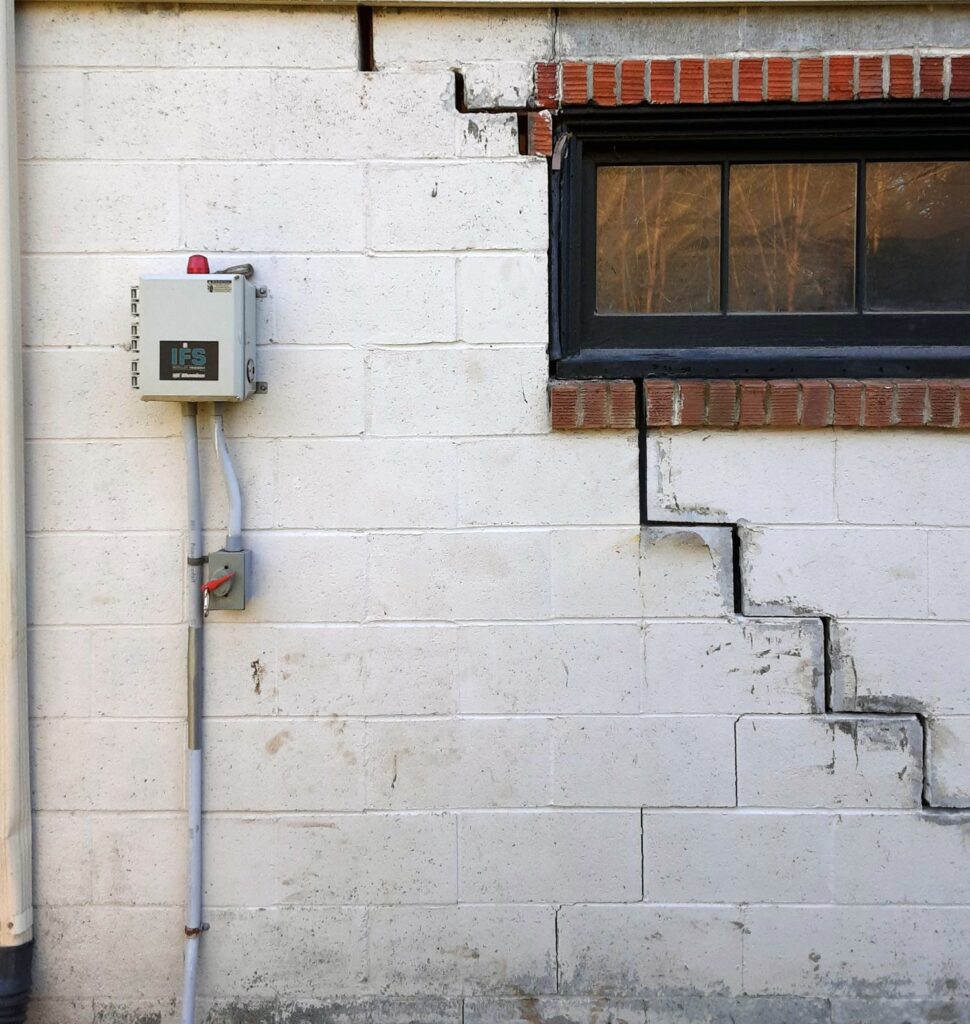Your home and everything in it — including you and your family — rests on its foundation. So, you’re not alone if you ask yourself, “Should I worry about foundation cracks” or, “Are foundation cracks normal?” You may be surprised to know that the answer isn’t as simple as “yes” or “no.” The answer also depends on what kind of foundation you have, poured concrete or block.
Older homes often have foundation walls constructed of 16” x 8” x 8” concrete blocks, also known as concrete masonry units (CMUs). These are joined by mortar to form a single block wall. Newer homes often have foundation walls constructed from poured concrete reinforced with steel bars. These can sometimes have the look of a brick wall, but this is a purely aesthetic effect achieved with the mold that held the concrete when it was in its liquid form.
Shrinkage Cracks in Poured Walls
Concrete can crack over time, often early on in its lifespan as it cures and shrinks. So, if you find a short, often vertical, hairline crack in your foundation wall — especially if it occurs near the seam where the forms were joined for the initial foundation pour — it may be nothing to worry about. Cracks of these type usually don’t represent a structural weakness that could worsen over time. However, if you are concerned about hairline cracks, we would be happy to take a look at them as part of our free, no-obligation inspection.

Diagonal Foundation Cracks in Poured Walls
If a poured concrete wall is experiencing excessive stress, it will often fail from the corners in. This will typically result in longer diagonal cracks that emanate from the corners of the wall — usually at the upper corners. If you see cracks of this type, it is probably time to call for an inspection, as this could indicate a serious structural problem with your home’s foundation and is often associated with a foundation sinking or “settling.”
If you do see foundation wall cracks of this type, don’t panic — most foundations can be stabilized and even lifted back to their original position using specialized equipment. This is often less expensive and far less disruptive than total foundation repair.
Cracks in Block Walls
Where poured walls typically fail from the top corners inward, block walls most often fail horizontally in the middle, bowing in as the mortar joints break. The evidence of a failing block wall, then, will usually consist of horizontal cracks midway up a basement wall. You may also see stairstep cracks as the joints fail around concrete blocks at different levels.
As with cracks in poured walls, cracks in block walls indicate a foundation under extreme stress. But just as poured wall foundations can be repaired, so too can block foundations.

When to Repair a Foundation Crack
Foundation wall cracks don’t magically go away; they get worse with time. The thing is, they tend to do so very slowly. So slowly that you may not even notice them getting bigger. So, it’s tempting to forget about them and let them be. But if you just let foundation cracks grow, there is a danger that the entire wall may fail, and then you’re in for a very messy, very expensive situation.
So, just as foundation cracks don’t get better with time, they also don’t get any cheaper to fix. In fact, it’s pretty much guaranteed that your cracked foundation will never be cheaper to fix than it is today. So, we always recommend fixing now rather than later.
If your basement wall is cracking due to foundation settlement, you may see symptoms all over your house that you didn’t realize were related. Things like sticking windows and doors or sloping floors and gapping ceilings can all be related to a sinking foundation. This means, when you repair your foundation, you may actually take care of other problems throughout the house. And, of course, if you’re planning any remodeling in the future, it’s always best to have a level foundation to begin with.
Ready to secure your home’s foundation? Don’t wait until small cracks become big problems! Contact TerraFirma today for a FREE consultation and let our experts assess your foundation’s needs.